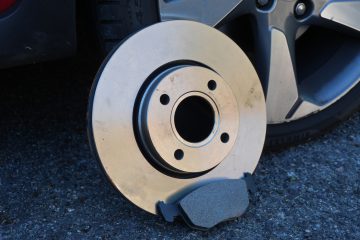The Independent Automotive Aftermarket Federation (IAAF) has confirmed that the UK will adopt a key piece of EU legislation aimed at allowing access to the OBD port once the country’s transition period ends on 31 December.
Following the UK’s departure from the EU in January, and the start of a transition period in which the country would still run according to EU legislation while it developed its own laws and trade deals, automatic adoption of this key piece of legislation could not happen without a formal consultation by the UK government.
“This represents one of the first examples in our sector of new legislation being implemented, following the UK’s exit from the EU,” The IAAF said. “Without this legislation there would be a very real risk that these key areas would not be accessible to the independent automotive aftermarket.
“We are therefore entering new territory with regards to UK legislation, as the IAAF sought clarification on a number of fronts following the Governments publication of their findings on the new type approval consultation (EU) 2018/858.”
The IAAF questioned the definition of on-board diagnostics (OBD) in draft regulations and requested government to be more explicit about RMI data having to be made available in a format that is processable electronically. It also asked how security-related repair and maintenance information (SERMI) would be handled.
The Department for Transport confirmed that under UK law, vehicles will be obliged to keep the OBD port open for RMI and this information must be made available in an electronically processable format. “We can confirm that the definition of OBD in Article 3(49) of Regulation (EU) 2018/858 will be applied in the UK, as it is in the EU,” a statement said.
On the subject of SERMI, the department said “If the EU agree a Regulation and it applies prior to the end of the transition period, it will become part of Retained law in GB, possibly with some amendments to ensure it works in a GB context. If not, we will examine whether to introduce it into GB law in 2021, noting the comments received here that strongly support such introduction.”
For many years, IAAF has argued that a level playing field should be provided to ensure consumer freedom of choice when repairing and maintaining vehicles, campaigning for the provision of a standard diagnostic port.
As a result of the consultation outcome, when issuing type approvals, VCA will be legally required to act in line with the ruling and manufacturers are also obliged to comply.
Wendy Williamson, IAAF chief executive, added: “This is a huge step in the right direction for the independent automotive aftermarket and we’re thrilled that the legislative framework now ensures that independent operators can continue to service and maintain vehicles reliably and fairly. Not only is this good for competition, but it provides the consumer with freedom of choice when choosing where to take their vehicle for repair work.”
Legislation adoption
In January this year, then Chancellor Sajid Javid said that the UK would not align itself with the EU following the Brexit transition period, sparking fears throughout the automotive industry.
Since then, however, the UK government has held consultations on the adoption of type approval and emissions standards, with outcomes of each likely to result in alignment. In the case of emissions, the UK will bring in legislation that manufacturers must commit to an average CO2 grams per mile figure across their sold fleet in 2021, or face heavy fines. It is this ruling in the EU, together with stricter targets for 2025 and 2030, that is pushing carmakers towards electric vehicles.
In the case of type approval, the adoption of EU legislation will also mean carmakers will not need to produce different standards of vehicle for sale in Europe and in the UK. There were previously fears that had Britain taken its own path, manufacturers would drop models, or pull out of the market completely.



